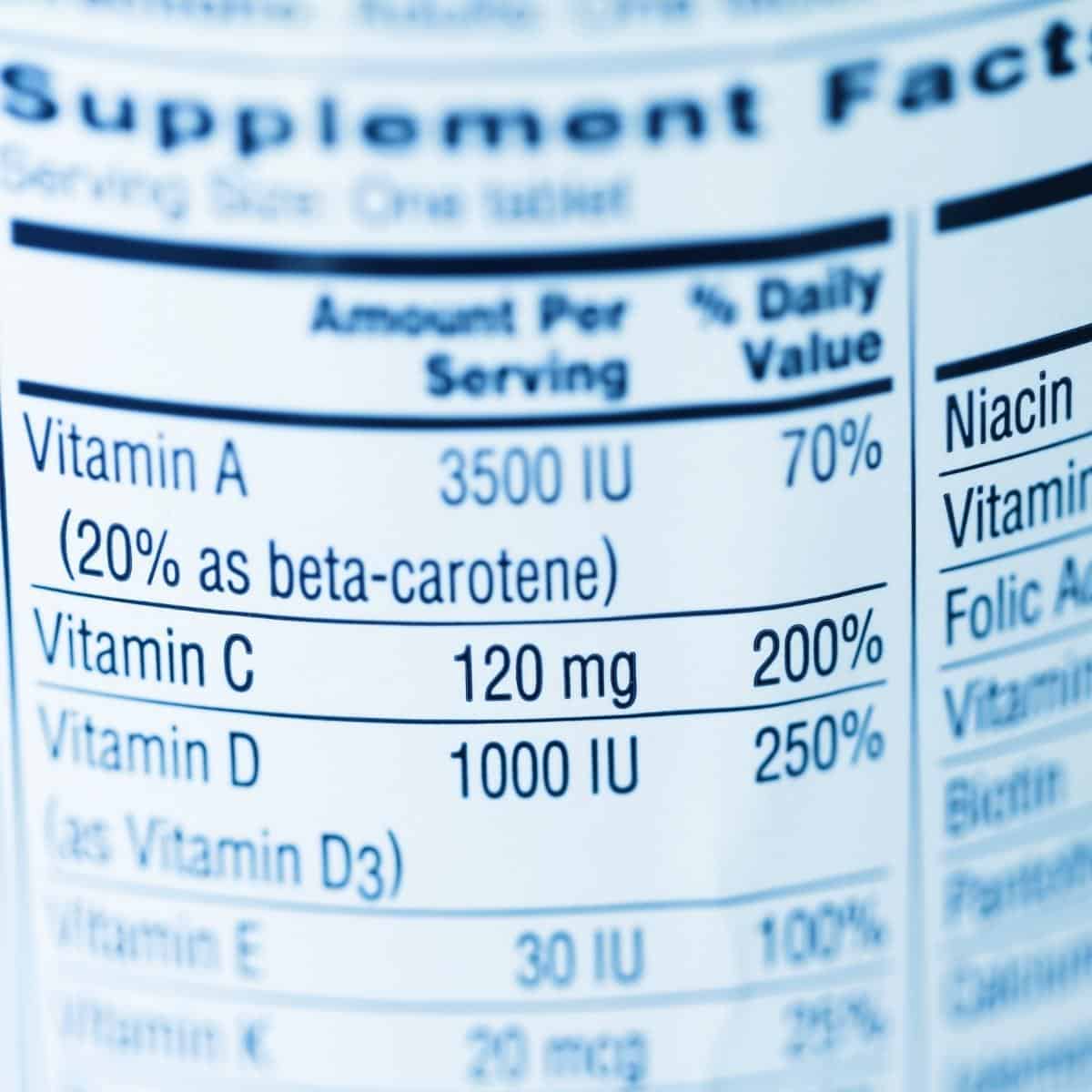5 Things to Look For When Choosing Quality Vitamin Supplements
This is a collaborative post or advertisement.
We all know that vitamins are essential. They help our bodies function correctly and support our overall health and immune system. But did you know that not all vitamin supplements are created equal?
When it comes to choosing a supplement, there are a few things you should keep in mind in order to ensure you’re getting the best possible product. Here are five things to consider when choosing a vitamin supplement.

The Right Dosage
Make sure the supplement contains 100% of the Daily Value (DV) for each vitamin. The Daily Value is the amount of each vitamin that’s considered safe and adequate for most healthy people, so you want to make sure your supplement contains at least that much. Anything less is a waste of money.
At the same time, avoid supplements that contain way more than the DV of that particular vitamin. While it’s important to get enough of each vitamin, you don’t want to overdo it. Taking too much of specific vitamins can actually be harmful to your health. For example, taking more than 200% of the DV of Vitamin A has been shown to cause liver damage, while too much Vitamin D can lead to kidney stones.
It is important to know your body in order to understand how much of a supplement you need. Start by getting a baseline amount of each vitamin you are already getting from your normal routine. If you’re not getting the correct quantity of certain vitamins from the foods you eat, then a supplement can help you bridge those gaps. But be sure to talk to your doctor before taking any supplements, as they can interact with medications you may be taking or other health conditions you have.

Be Wary of Supplements That Contain “Proprietary Blends.”
Proprietary blends are mixtures of different ingredients that are combined together and given one overall name. The problem with these is that you have no way of knowing the quantity of each ingredient that is actually in the blend, so you could be taking too little or too much of any given vitamin. It’s best to avoid supplements that contain proprietary blends altogether.
When a company marks something as a proprietary blend, they do not need to tell you how much of each thing is in the blend. So, a supplement that contains a proprietary blend of Vitamin C and Vitamin D3 could have twice as much Vitamin C as it does Vitamin D3 or vice versa. You just don’t know. It’s always best to choose a supplement that lists the exact amount of each vitamin it contains.

Choose a Supplement That’s In a Convenient Form
Vitamins come in many different forms, from capsules and chewable tablets to powders and liquids. Some forms are more easily absorbed by the body than others. For example, liquid vitamins are typically better absorbed than pill form vitamins.
When choosing a supplement, think about what form would be easiest for you to take on a daily basis. If you have trouble swallowing large pills, for example, then a gummy vitamin might be a better choice for you. Gummy vitamins, such as vitamin C gummies, and chewable vitamins, such as vitamin D chewable, are also good choices for kids who need a vitamin supplement in chewable form.
When making your choice on what type of supplement, you need to find a balance between which method the vitamin is best absorbed by the body and which form is the easiest and most convenient to take.

Choose Supplements with Natural Ingredients.
Whenever possible, choose dietary supplements that contain natural ingredients as opposed to synthetic ones. Synthetic ingredients are often less effective and can sometimes cause side effects. Furthermore, natural ingredients are typically better tolerated by the body, making them more likely to actually be absorbed and used by the body.
Some ingredients that you will commonly see that aren’t natural are:
- Folic acid: a synthetic form of the essential nutrient folate that’s often added to foods and supplements.
- Hydrogenated oils: these oils that have been chemically treated to make them solid at room temperature. They’re typically found in processed foods and can be harmful to your health.
- Artificial flavours and sweeteners: these include ingredients like aspartame, sucralose, and saccharin. They’re often added to foods and drinks to make them sweeter without adding calories. However, they can cause side effects like headaches and weight gain.
Even further, look for vitamins that are GMO-free, contain only natural sugars, are soy-free, gelatin-free, high fructose corn syrup, and gluten-free. Vitamins with these characteristics will be easier for your body to process and assimilate.

Make Sure the Supplement Has Been Tested by a Third Party
When it comes to dietary supplements, it’s always best to err on the side of caution. That’s why you should only take supplements that have been independently tested by a third party. These organizations carefully test supplements to ensure that they contain the ingredients they claim to contain and that they don’t contain any harmful contaminants.
If a supplement company does not have third-party tested badges, it is a red flag, and you should avoid that dietary supplement. Some of the most well-known and respected third-party testing organizations are U.S. Pharmacopeia (USP), ConsumerLab, and NSF International.

In Conclusion
When choosing a vitamin supplement, it is critical to consider many different factors. Among the most important are what form the vitamin comes in, whether the ingredients are natural or synthetic, and whether the dietary supplement has been independently tested by a third party. By keeping these things in mind, you can make an informed decision about which vitamin supplement is right for you and your immune health.



